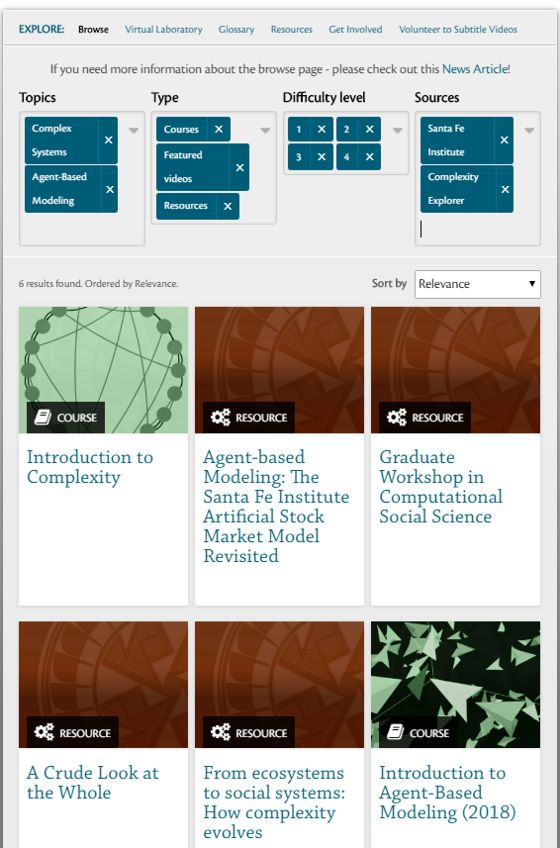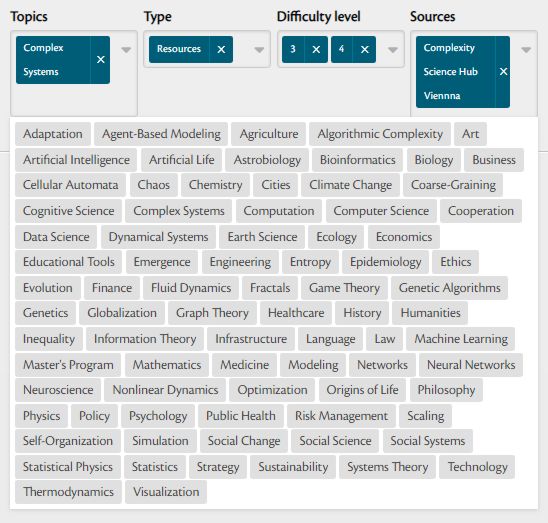| Explore More on Complexity Explorer |
| Written by Sue Gee |
| Wednesday, 14 November 2018 |
|
There's a new facility on Complexity Explorer that lets you browse over 700 Complex Systems Science Resources. This will help anyone wanting to learn more locate relevant courses, tutorials, videos and web content at levels from beginner to technically advanced.
Complexity Explorer is the web-based repository of educational materials related to complex systems science from the Santa Fe Institute and Portland State University. We covered its inaugural course, Introduction to Complexity, in Spring 2013 and have sampled more since, see More Courses On Complexity Explorer. We also reported on the online Online Master's Degree in Complexity it now offers in conjunction with Arizona State University which builds on its free online courses. Now the Complexity Explorer Team has launched a new Browse page that lets you filter content across its, and external, sites according to topic, type, difficulty, and/or source. There is a comprehensive, and overlapping, set of topics: The eight available types are Courses, Tutorials, Challenges, News, Glossary Terms. Resources, Pages and Featured Videos. The four difficulty levels are as follows:
With regard to Sources there are eight option including two for in-house content, Complexity Explorer or Santa Fe Institute, and three for external bodies - Complexity Research Center, Arizona State University and Complexity Science Hub Vienna. "Online" refers to courses from an external provider that you can access online while 'Web Resources'. refers to that are non-course material such as an informative webpage, or a blog. Content type is also colour coded making it possible to identify items of interest at a glance. If you've not visited Complexity Explorer before it's also worth visiting its Courses page for the courses and tutorials on offer. The flagship Introduction to Complexity, is now self-paced and open year round so you can learn the fundamentals of Complex Systems Science and earn your certificate at any time. Other courses are semester-long and are available as a course session, or an archived course. Tutorials are short, self-paced “mini-courses” designed to introduce students to important techniques and to provide illustrations of their application in complex systems. It's all high quality and well taught and highly recommended.
More Courses On Complexity Explorer Online Master's Degree in Complexity Going Further Into Complexity With Santa Fe Institute {loadposition signup} {loadposition moreNEWS} {loadposition moreNEWSlist} {loadposition comment} |
| Last Updated ( Wednesday, 14 November 2018 ) |




